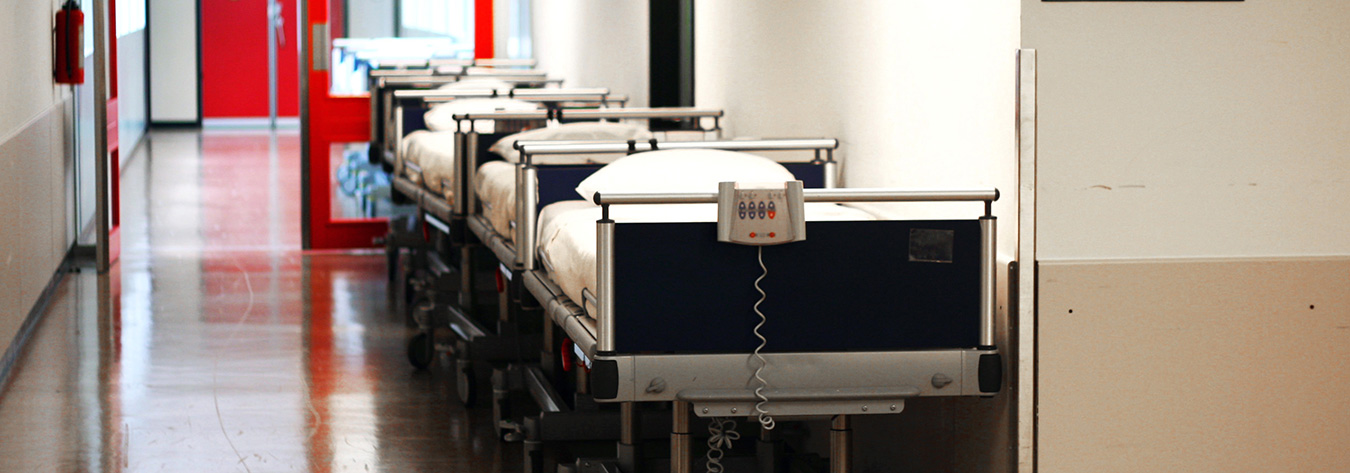- Financial benefits to admitting patients for longer exist in Japan
- Western countries think extended stays increase risk of problems
- Short stays can boost hospital productivity and patient rehab
A significant contrast between hospital care in Japan and the UK is the length of hospital stays; a large difference in the number of each country’s hospital beds may contribute to this.
According to a study by the Organisation for Economic Co-operation and Development in 2013, the UK has 2.8 hospital beds per 1,000 of the population—slightly below average for a developed country—while Japan is endowed with the highest density of the countries surveyed, at 13.3 beds per 1,000.
As a result of the way Japanese social healthcare remunerates hospital admissions, there are financial benefits for hospitals to admit patients for a longer period of time. The average hospital stay in the UK for all causes is seven days, while Japan is the outlier with the longest average hospital stay of any developed country, at 17.2 days.
In a 2009 report, global management firm McKinsey & Company said that excess bed capacity and extended hospital stays are a costly inefficiency within the Japanese healthcare system.
However, although more resource efficient, the UK model of fewer beds and shorter stays has its own set of issues. Doctors in the UK may feel under pressure to send patients home as quickly as possible. Stories abound in the British media about problems caused by unsafe or poorly coordinated discharges.
Likewise, long waits in emergency units or patients spending time on trolleys in hospital corridors are a direct consequence of fewer available hospital beds.
Foreign patients in Japan typically have mixed reactions to this difference in hospital culture. Women staying in hospital after childbirth often comment that a longer stay helped them to recover better after the delivery. Other patients complain that they have to stay one or several nights in hospital for straightforward minor surgical procedures that would be offered as a day case in another country.
For orthopaedic emergencies (typically broken bones), though, there are particular problems. Although admission to a hospital bed after such an injury is generally straightforward, if an operating theatre is unavailable some patients may wait on a hospital ward for a week or longer for an urgent procedure that might be performed within 24 hours in the UK.
Funabashi Orthopaedic Hospital in Chiba Prefecture has taken a different, innovative approach. Dr Hideaki Shiratsuchi, deputy hospital director, said that visiting doctors from France and Germany expressed surprise at Japan’s comparatively long hospital admissions.
In most Western countries, long stays after surgery are seen as undesirable because they increase the risk of hospital-acquired infections. In addition, encouraging patients to mobilise soon after surgery helps to preserve muscle function and reduce the risk of deep vein thrombosis.
After discussions with foreign orthopaedic surgeons, the hospital management at Funabashi instigated progressive steps to shorten admissions.
In 2004, at the start of this process, patients spent 14 days in hospital after a knee or hip replacement, which was typical or below average for Japan at the time. This period was gradually reduced to the point where, in 2014, hospital stays for the same operations had been reduced to five days, the normal duration of admission in most European hospitals.
At the same time, more minor procedures such as joint arthroscopies were offered as day cases: highly unusual for Japan.
The cumulative effect of this was that the hospital dramatically improved its productivity. Between 2006 and 2014, with no increase in the number of hospital beds, the volume of operations performed was more than doubled and the average hospital stay was reduced from 8.6 to 5.2 days.
At the same time, care was taken to ensure patient satisfaction remained high and outcomes were not affected.
Avoiding long hospital stays means that beds become available more quickly, leading to shorter waiting times and better availability for patients who need emergency treatment after trauma.
Time will tell whether this type of approach can serve as a template for other Japanese hospitals.
Japan’s long-term aim is for up to one-third of acute hospital beds to be gradually converted to long term care use between now and 2025 as the population ages. This may require hospitals to make more efficient use of a reduced number of beds for acute care.







